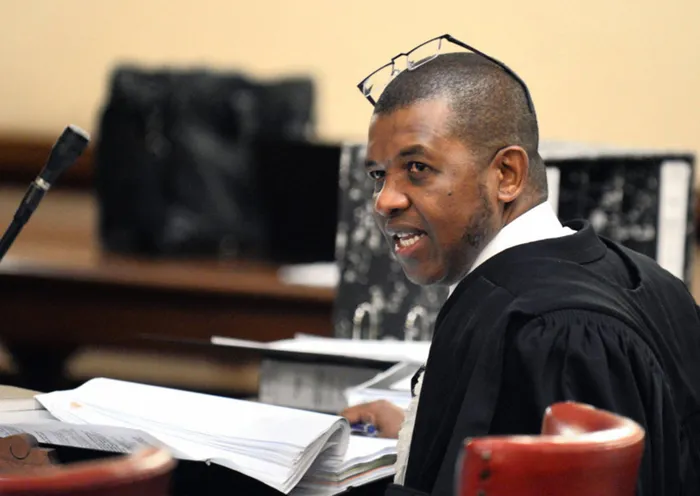Marikana case could set precedent

11/07/2013. Adv. Dalli Mpofu in the Palace of Justice. Picture: Oupa Mokoena 11/07/2013. Adv. Dalli Mpofu in the Palace of Justice. Picture: Oupa Mokoena
Pretoria - The consequences of making the State pay for the legal representation of the miners wounded and arrested in Marikana last year would be unpredictable, a government lawyer said on Friday.
“This is an unpredictable and abstract complication to which we are opening the door,” Marius Oosthuizen told the High Court in Pretoria.
He is representing President Jacob Zuma and Justice Minister Jeff Radebe in the matter.
Lawyer Dali Mpofu, who brought the urgent application, has argued that the miners are entitled to legal representation at the State's expense.
Mpofu, who is representing the miners at the hearings of the Farlam Commission of Inquiry, wants Zuma and Radebe to approve payment for the mineworkers' legal team.
Oosthuizen asked the court what the effect would be if the right to public funds for private representation was allowed.
“Where will it end?” he put to the court, adding that the State did not have unlimited funds.
He said this would be an unpredictable financial burden.
“How long is the Marikana Commission going to take? What about other commissions to come?”
He told the court the application was not about the miners' legal representation.
“This case is not about the right to legal representation. This is a case about public funding. Nobody said they can't have legal representation,” Oosthuizen said.
“This case is whether the public purse should be opened up for the applicant.”
If the application was granted, it could set a precedent for public funding.
“This is something not to be rushed into in a matter of days,” Oosthuizen said.
He argued that nowhere in the Legal Aid Board Act or guide was there authorisation for funding representation before a commission.
“It is in principle unauthorised.”
He said the legislation did allow for exceptions in certain circumstances, but that “Mr Mpofu's argument elevates the exception to the norm”.
He said if Mpofu wanted to argue that the act was under-inclusive and therefore unconstitutional, he should attack the act, and not argue it during the application.
The Farlam Commission is investigating the circumstances surrounding the deaths of 44 mineworkers in strike-related violence in Marikana, North West, in August. - Sapa